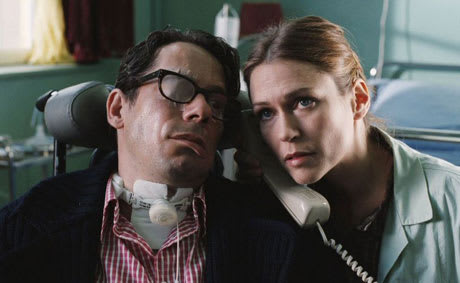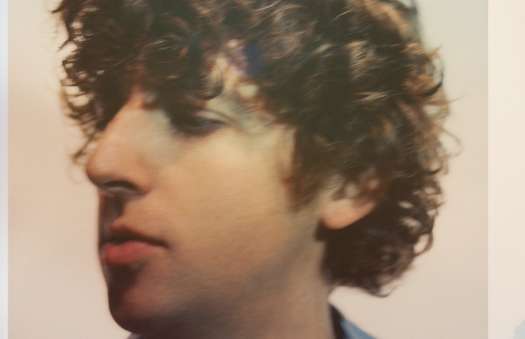At the age of 42, French Elle Editor Jean-Dominique Bauby suffered a stroke that left him completely incapacitated, save for his left eye. An inverted Helen Keller, he could see and hear but do little else, aside from write a hugely popular memoir by dictating with said eye. Julian Schnabel (Before Night Falls) won the Best Director prize at Cannes for his adaptation of Baubys tome, however, despite visual flair and a stellar performance from his lead, he cant entirely overcome the cinematic limits imposed by his subject matter. Visually, the film is at turns terrifying and gorgeous. Schnabel a noted neo-expressionist painter and DP Janusz Kaminski (Munich, Saving Private Ryan) have created an aesthetically thrilling and innovative film. Largely presented from Baubys viewpoint, a fixed, one-eye, no-neck perspective imbues the audience with empathy before expanding into effervescent memories and imaginations as Baubys mind broadens its scope. The oft-fantastic Mathieu Amalric (Kings and Queen, Munich) plays the lead, a role for which his left eye has garnered a number of awards. As the pre-attack editor, he is paradoxically smarmy and likable, and his ability to retain both aspects throughout his transformation is beyond impressive. Also, the supporting cast is universally strong, especially the underused Marie-Josée Croze (The Barbarian Invasions) as an Annie Sullivan-style therapist, and Emmanuelle Seigner (La Vie en Rose) as a long-suffering consort. The films major quandary is an obvious one: this is a movie about a man who can only move one eye. A perpetual inner monologue, though often comical and profound, frequently drifts into book-on-tape territory. Even when buoyed by visual panache, the ever-present narrator removes the deductive onus from the viewer, spoon-feeding insights rather than encouraging them. Furthermore, the vibrancy of Baubys past, albeit fittingly ebullient, is limited to a music video montage and a handful of remembrances. Thus, the slightness of comparative material lessens the feeling of loss. The solid DVD package has a decent Charlie Rose interview with Schnabel, a short but insightful "making of documentary and a thorough directors commentary. However, the highlight of the disc is a comprehensive look at the technological and artistic aims of the film, which explain motivations and methods. A look at the real Bauby would have been nice but you can always read the book.
(Alliance Atlantis)The Diving Bell and the Butterfly
Julian Schnabel

BY Scott TavenerPublished May 23, 2008



